Black and White Small Drawings
Black and white drawings: 9 top tips
This may seem like an odd way to start an article on black and white drawings, but when I was a kid, my favourite drawing tool was a blue crayon. I drew everything in that one colour – the sky, the sea – and things that weren't even blue, like my neighbour's cat, our house, and my family. These monochrome drawings helped me develop the skills to know how to draw in black and white.
Ballpoint pens are readily accessible and easy-to-use drawing tools for black and white pictures. They also present their own challenges and limitless possibilities, which we'll explore in these drawing tips.
You might prefer to draw your black and white artworks in pencil or with marker pens, which we'll explore too. (And if you need to stock up your pencil case, don't miss these roundups of the best pencils and best pens.) Have a look at the video below, then read on for nine tips for beautiful black and white drawings – or blue and white, if that's your thing.
For more art advice, explore our how to draw tutorials and fundamental pencil drawing techniques articles.
01. Watch out for excess ink
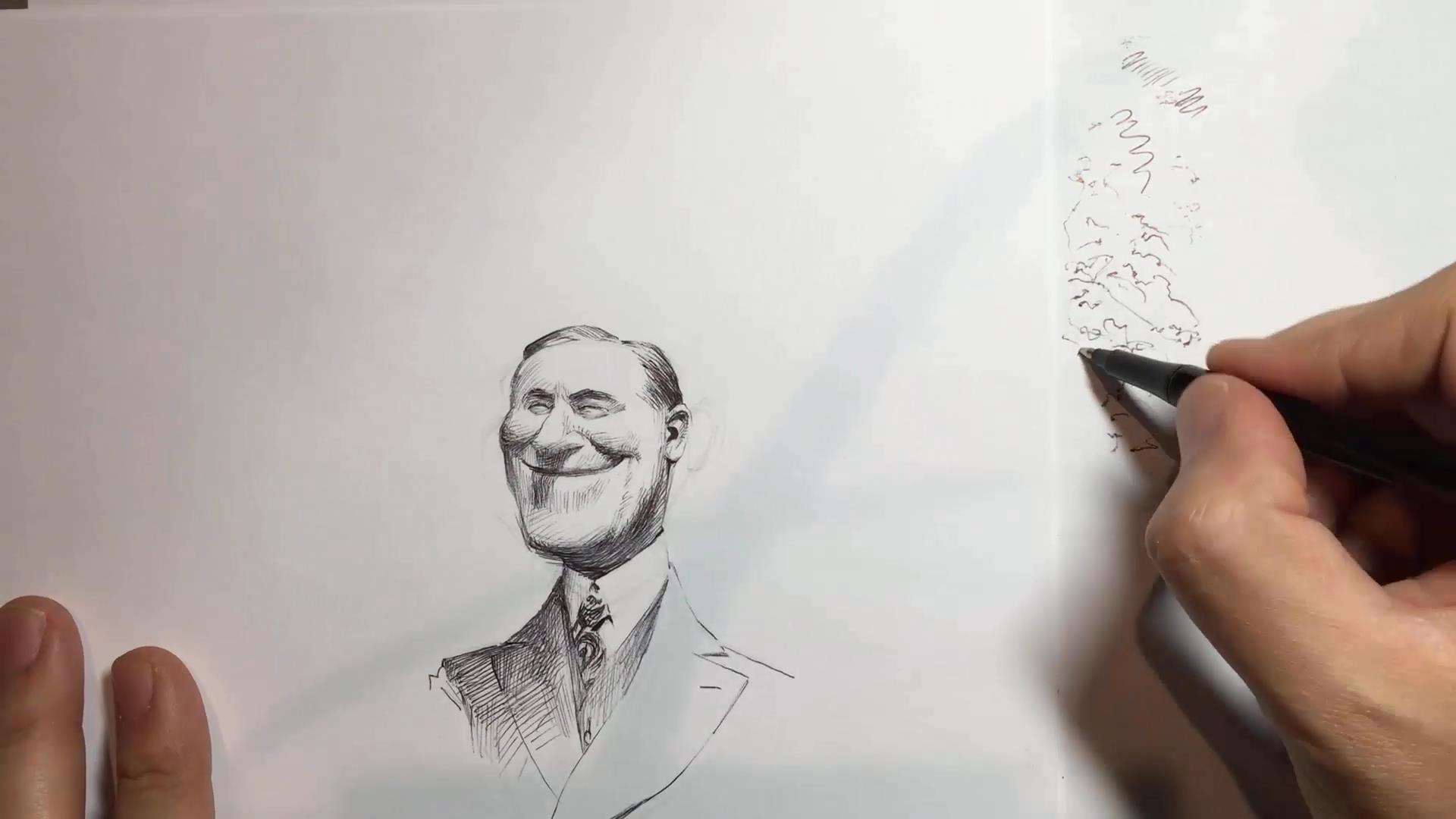
Ballpoint pens are great to draw with because we can make beautifully thin lines with them and create a lot of contrast. However, pens can also be very unforgiving: every mark is permanent – and so is every errant ink blotch! A big ink blotch could suddenly form and ruin your drawing forever.
To prevent this, periodically roll the sides of your pen tip on a scrap sheet of paper to remove ink buildup.
02. Use various tones of black
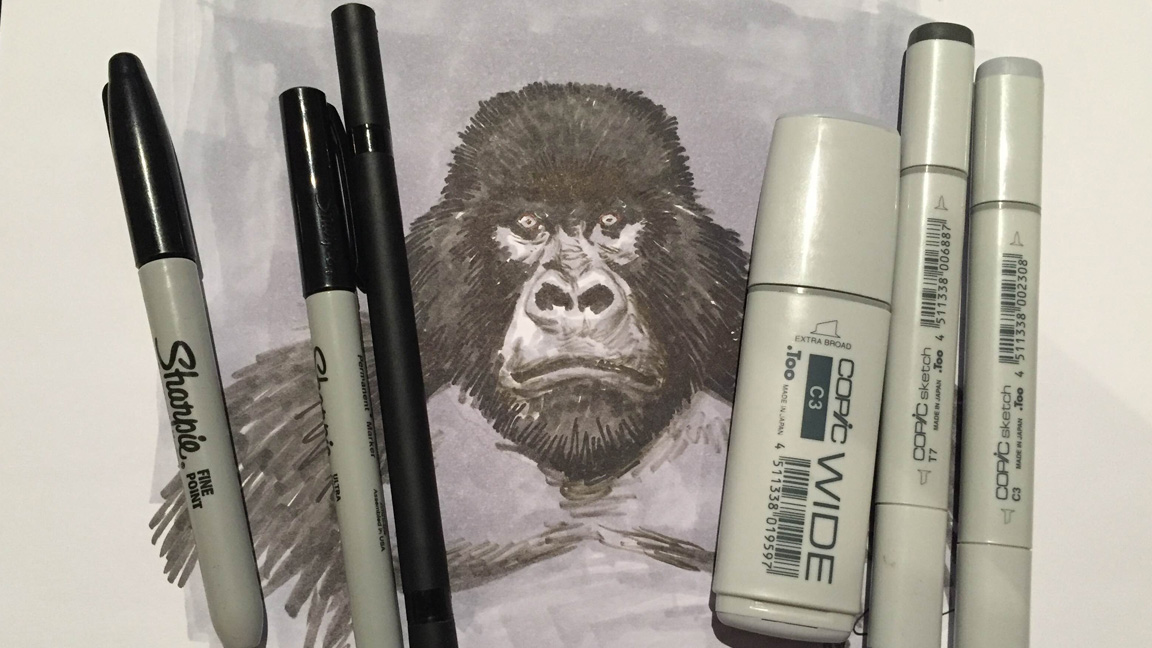
When drawing with markers, try to get a variety of black tones to work with in order to create a maximum range of values. Markers draw really quick and clean but can be a little difficult to work with if you're not used to the starkness and graphic nature of marker work.
Hopefully these next tips will help you get over the learning curve quickly and with ease.
03. Support markers with pencils
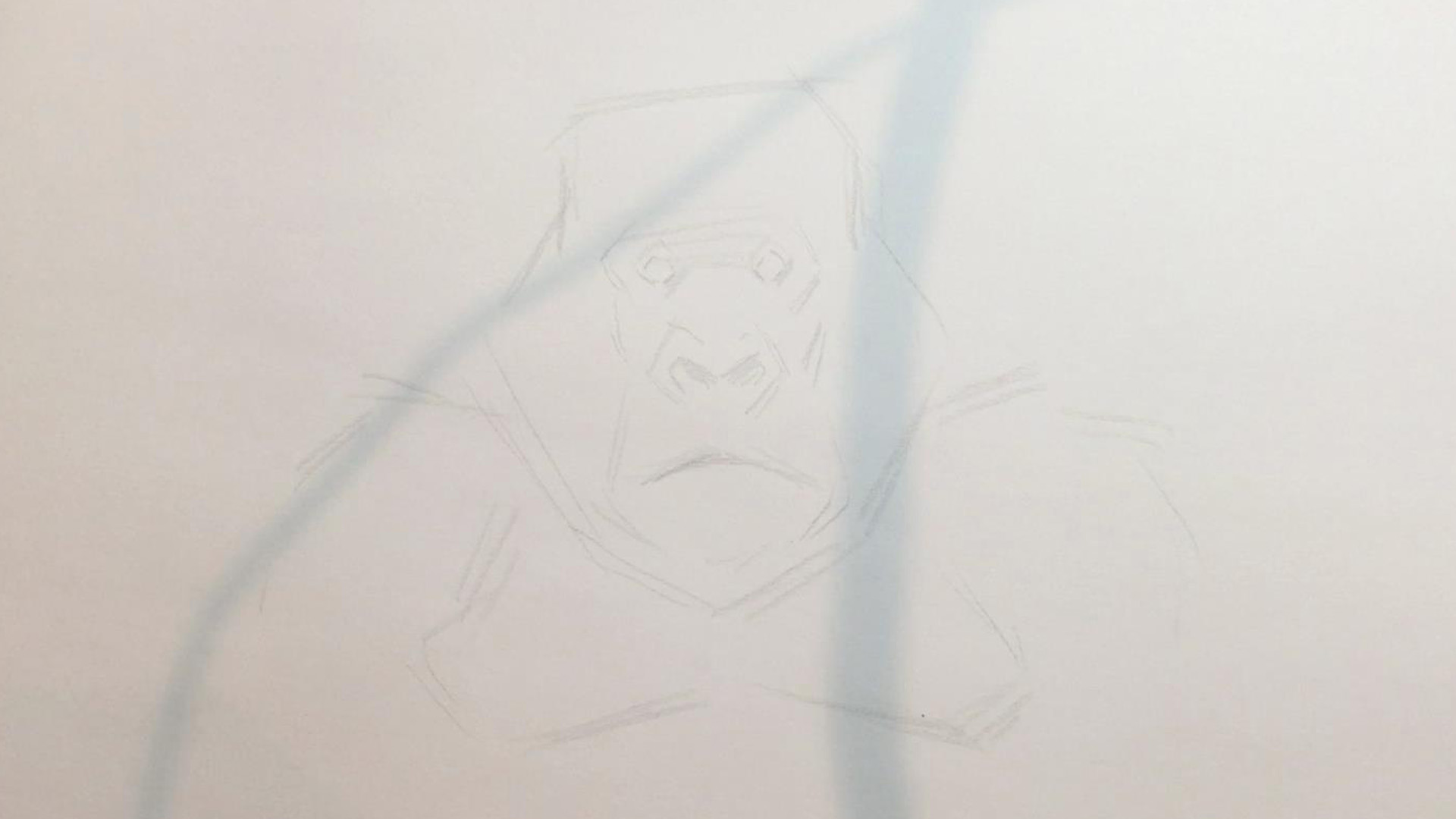
When working with markers, do a rough sketch of your idea in pencil first before making permanent marker pen marks. The great thing about sketching a marker drawing in pencil first is that after the marker ink has dried, you can take an eraser to the entire illustration and remove the initial pencil sketch, leaving the marker intact.
04. Keep your fading markers
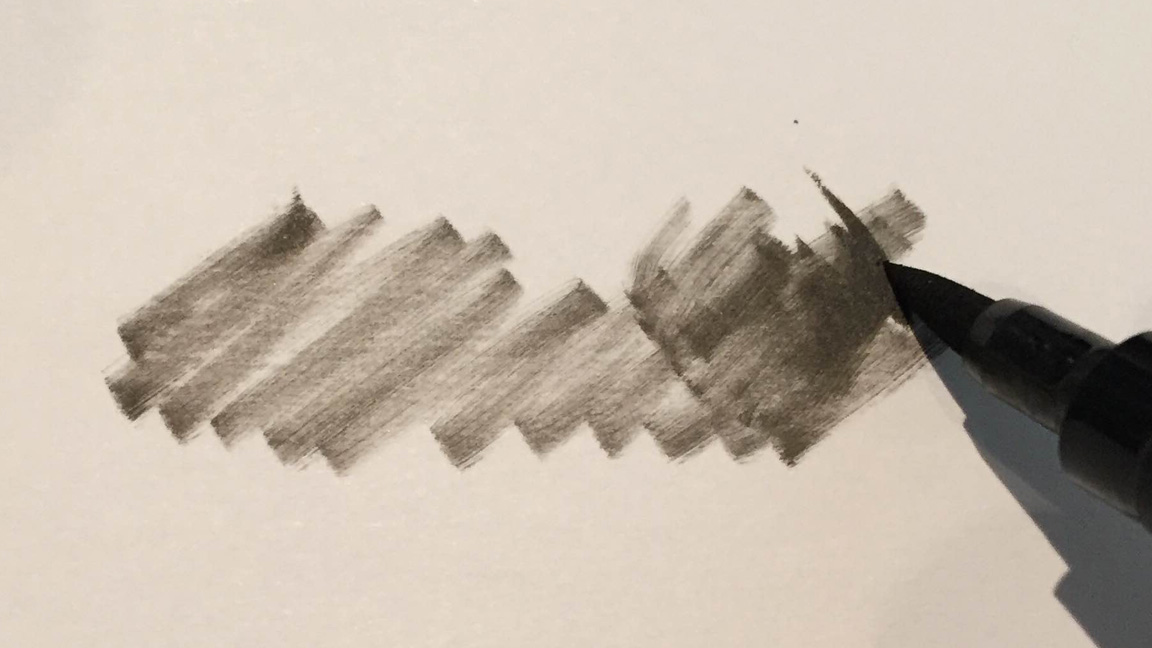
Because markers use so much ink, they tend to run out quickly. However, just because a marker is fading doesn't mean it's not useful anymore. Markers that are running out of ink are great for creating texture or blending together tones. I find them just as necessary in the drawing process as fresh new markers.
05. Harness the versatility of pencils
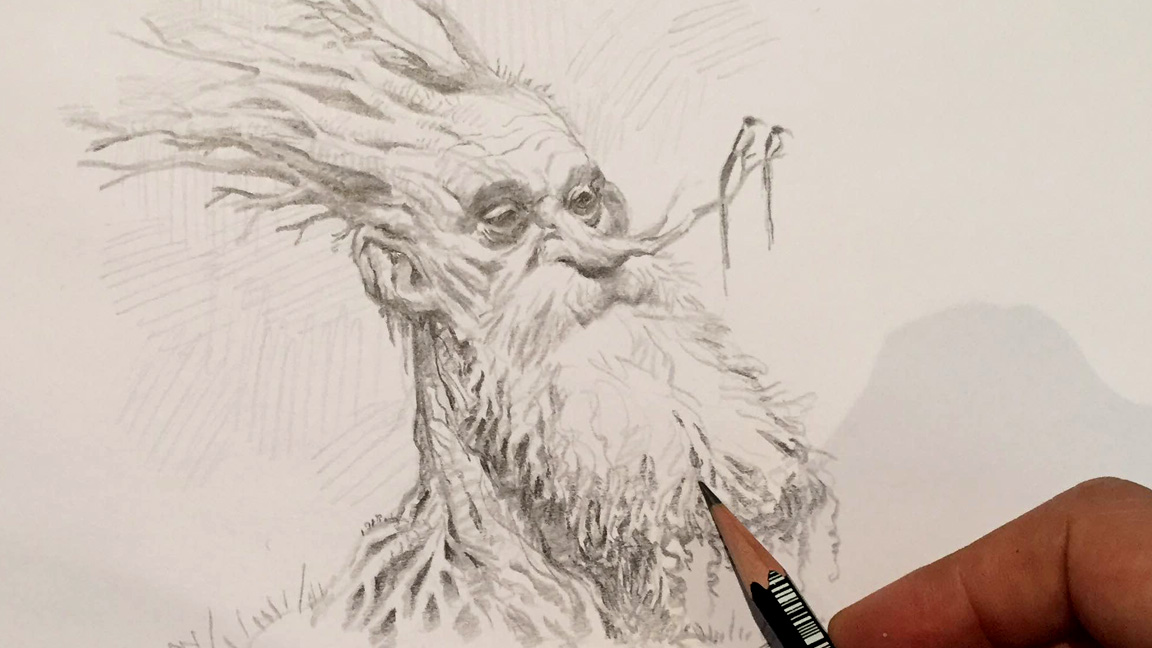
Behold the humble pencil: so simple and basic yet so full of possibilities. Like handwriting, everybody draws differently from everybody else. Our various styles will inform how we use our pencils so experiment with different types of pencil marks to get the full range of use out of your pencil. This will be valuable especially when using different types of marks to describe textures and elements as completely different things.
- Drawing techniques: 7 fundamentals of pencil drawing
06. Keep it light
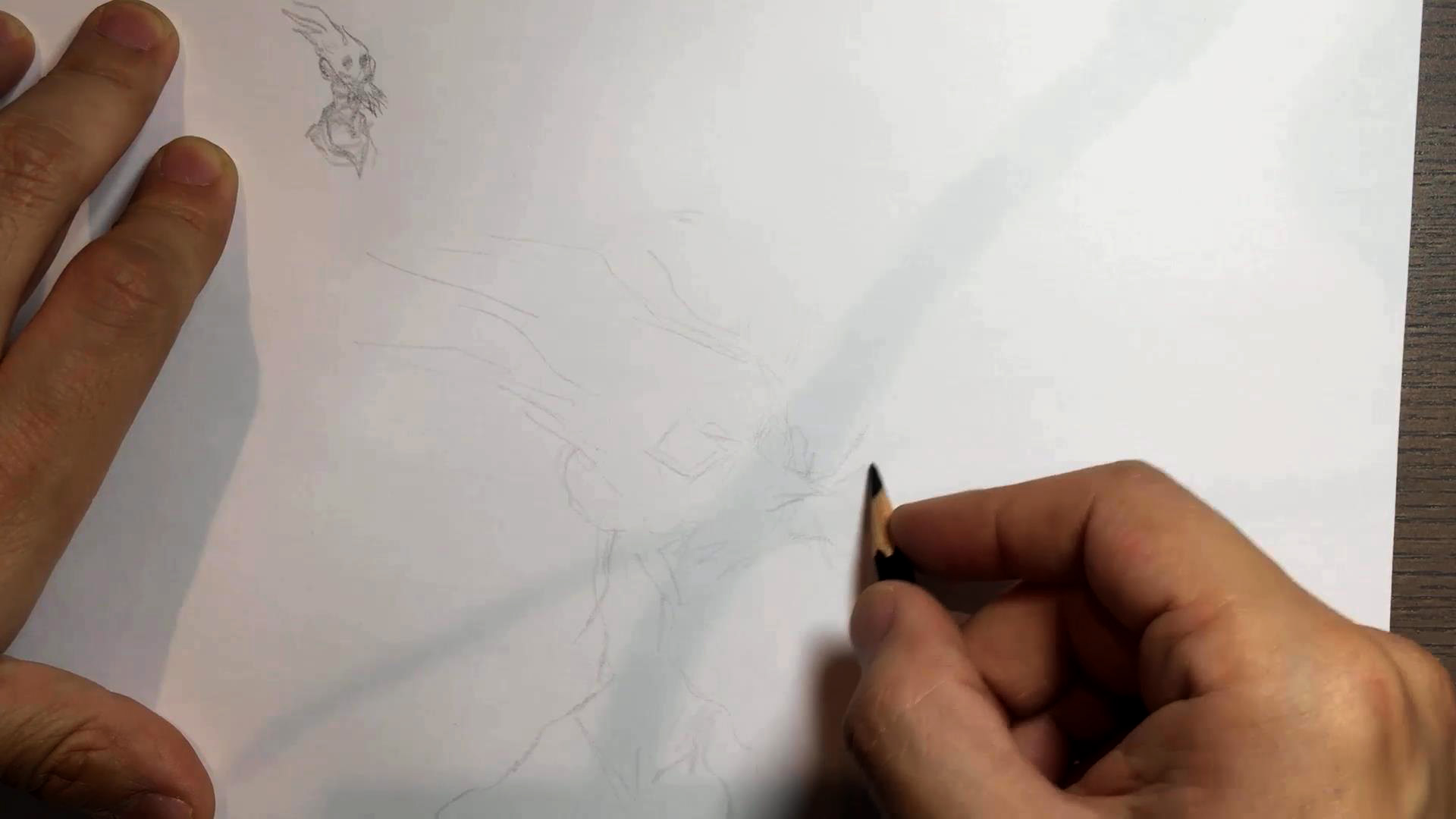
When drawing with pencils, we tend to make lines too dark too early. We should sketch with light lines because these only suggest edges and borders; dark lines are for the later stages because they are definitive and not open to interpretation. Lines can darken prematurely if it takes a few tries to get the exact line you want. If that happens, slow down and be more careful; speed up again once you get the hang of it.
07. Use multiple pencils
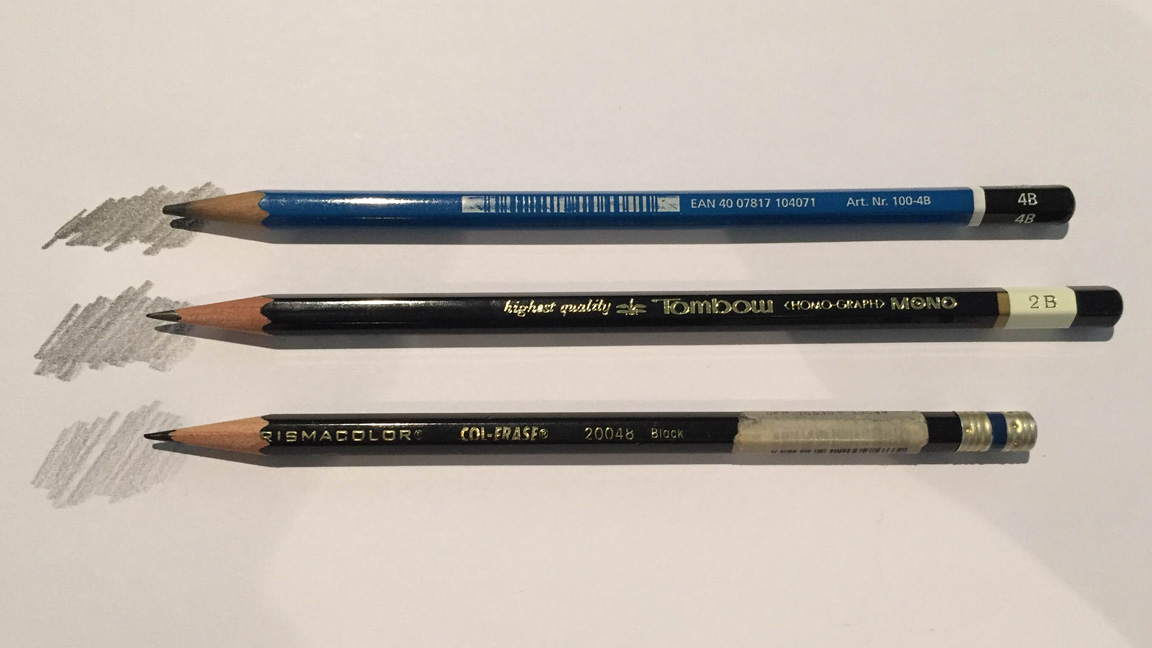
We can do a lot with one pencil but we can broaden our range of values if we use a variety of pencils. I prefer to use two or three different pencils, starting with a 2H. Pencils with the letter H have harder lead, which won't mark my paper as much so their lines will have a lighter tone. B pencils make blacker marks than H, so I use these more towards the finish.
08. Protect your work in progress
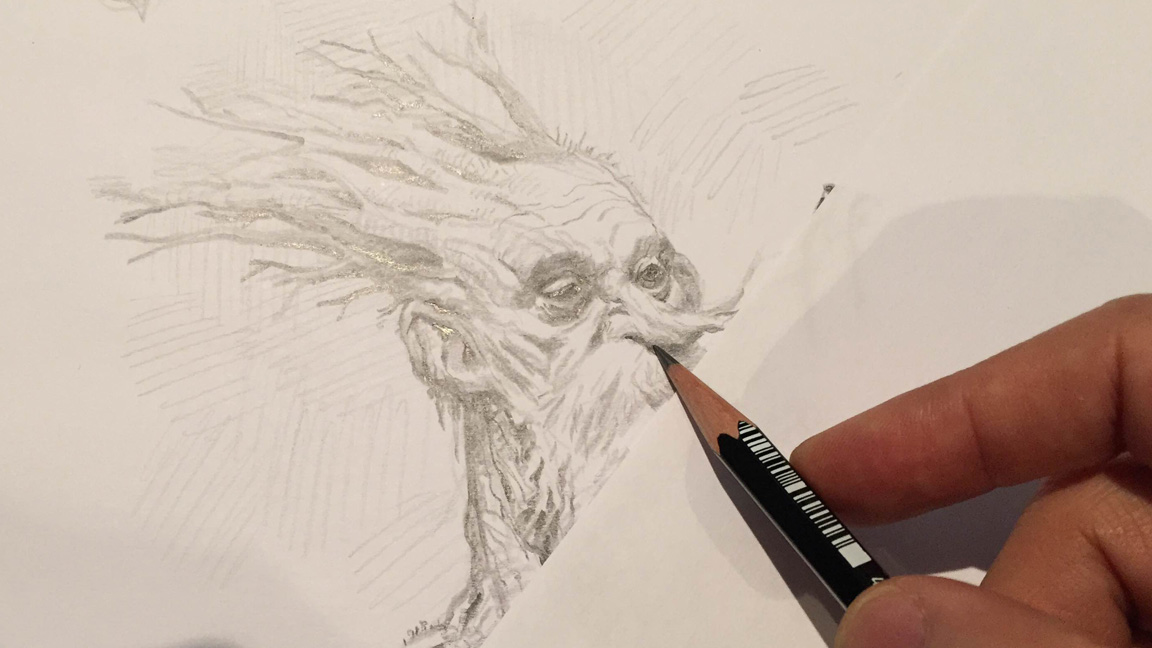
Just like when drawing with ballpoint pen, a blank sheet of scrap paper can come in handy when drawing with pencils too. Pencil drawings – particularly those done with B pencils – can smudge very, easily so I like to put a blank sheet of paper under the heel of my hand as I draw so as to protect my work in progress.
09. Draw thumbnails first
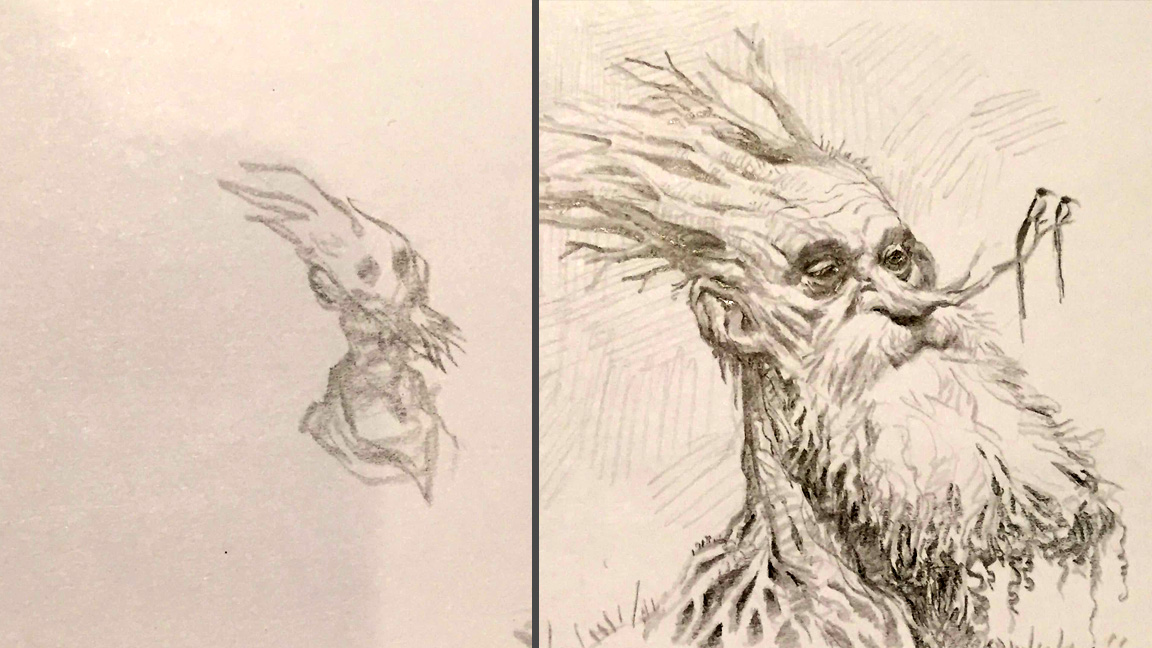
Before I begin drawing in earnest, I like to first plan out my drawings using small thumbnails. Regardless of what drawing tool I'm using, thumbnails help me figure out composition and readability, which helps me avoid errors before I commit them to paper. Employing thumbnails also allows me to explore ideas quickly and by sketching small, I force myself to simplify and focus only on the important elements of my drawings.
Related articles:
- The 11 best drawing books
- 10 expert tips for charcoal drawing
- 20 sketching tips to help you make your first marks
Bobby Chiu has been a professional artist for over twenty years, and is the founder and creative director at Imaginism Studios located in Toronto. He specializes in concept art and character design, and also teaches on Schoolism.com.
Related articles
Black and White Small Drawings
Source: https://www.creativebloq.com/advice/9-black-and-white-drawing-tips
0 Response to "Black and White Small Drawings"
Post a Comment